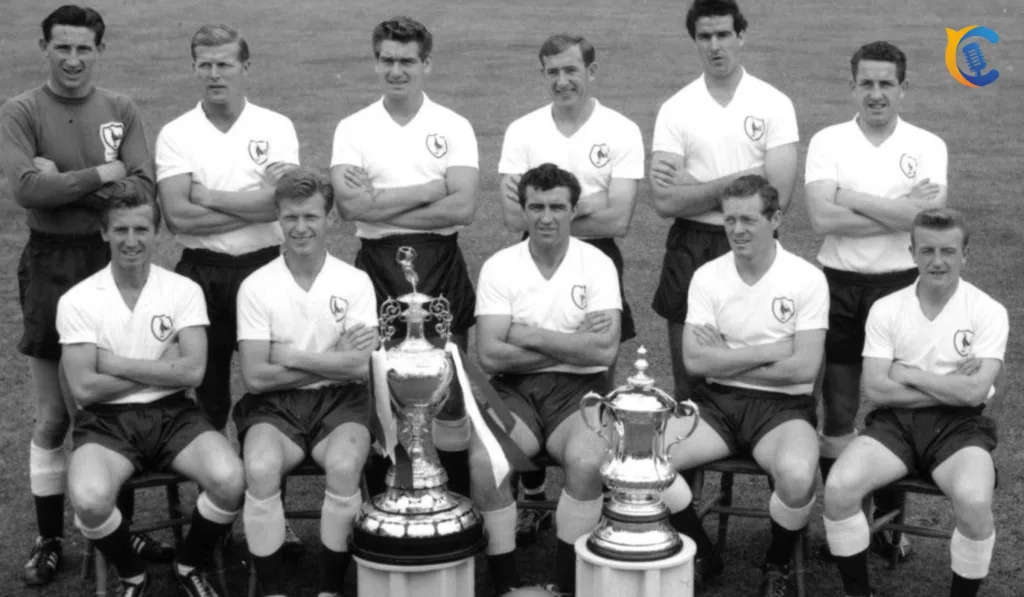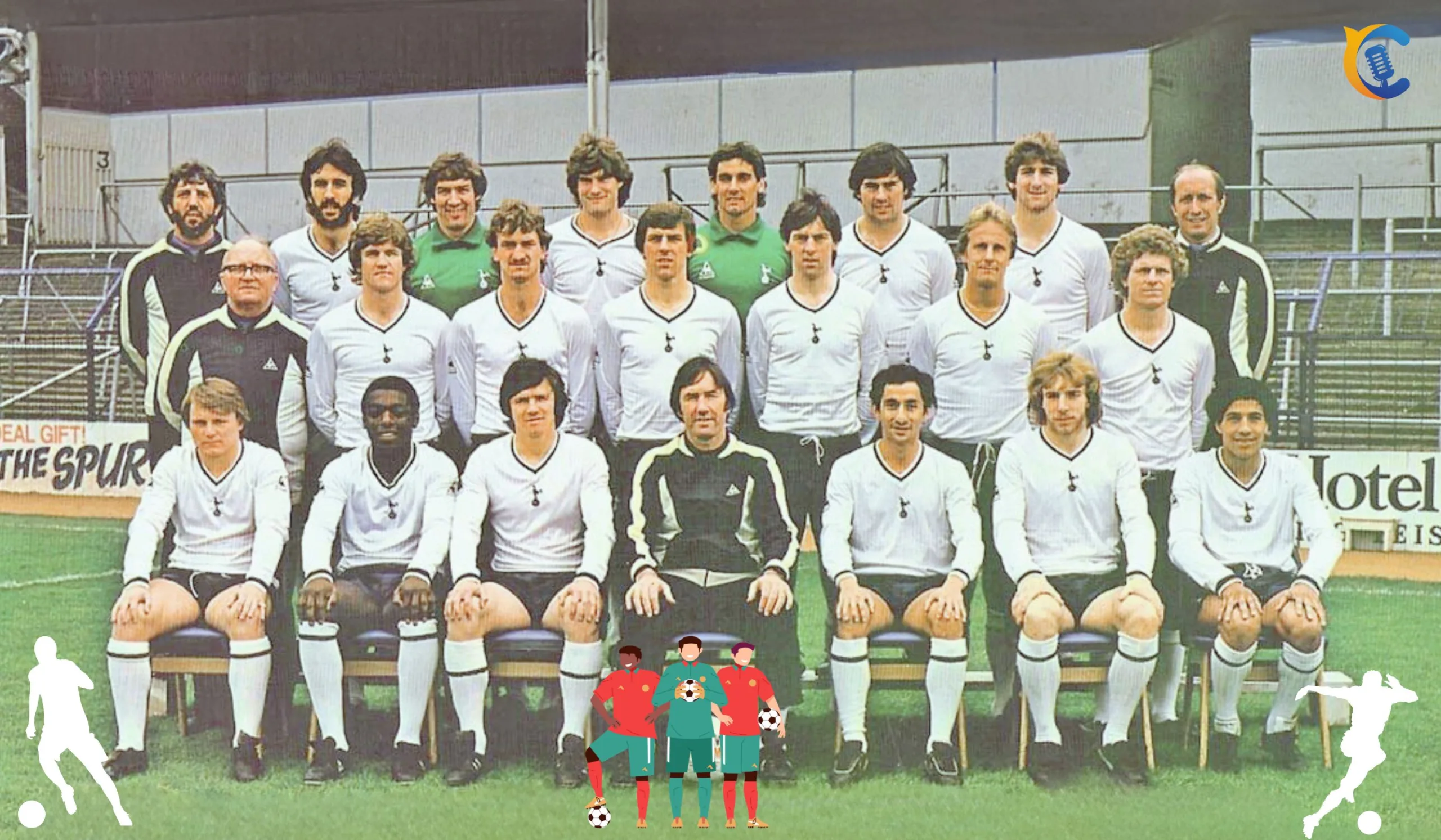Tottenham Hotspur FC / Tottenham Hotspur Football Club / Tottenham Hotspur Football Team
Table of Contents
Introduction

Tottenham Hotspur Football Club, affectionately known as Tottenham or Spurs, boasts a remarkable history that stretches back to its establishment in 1882. A cherished and renowned football club, Spurs have captured the hearts of fans globally with their enthralling style of play, legendary players, and an unwavering fan base. This blog post delves into the illustrious journey of Tottenham Hotspur, from its humble beginnings to its current status as one of England’s football giants.
Founding and Early Years
The origins of Tottenham Hotspur FC can be traced back to 1882 when a group of schoolboys formed Hotspur FC, inspired by the character Sir Henry Percy from William Shakespeare’s play “Henry IV.” Renamed as Tottenham Hotspur in 1884, the club embarked on its journey as a professional football entity.

White Hart Lane and Glorious Achievements

In 1899, Tottenham Hotspur found a hallowed home at White Hart Lane, where countless memorable moments would unfold until its closure in 2017. Spurs tasted their first success in the 1950s, led by legendary figures like Danny Blanchflower and Jimmy Greaves, securing the First Division title in 1951 and 1961, along with two FA Cup triumphs in the 1960s.
European Glory and the 1980s

Tottenham Hotspur left an indelible mark on European football by clinching the UEFA Cup in 1972 and 1984. The 1980s witnessed the club’s continued competitiveness, featuring key players such as Glenn Hoddle and Ossie Ardiles, as they faced formidable challenges from other football powerhouses.
The Premier League Era

The inception of the English Premier League in 1992 ushered in a new footballing era, and Tottenham Hotspur emerged as strong contenders. While the club experienced ups and downs, it boasted remarkable talents like Teddy Sheringham, Jurgen Klinsmann, and Gareth Bale. Although the Premier League title remained elusive, Spurs consistently secured top-four finishes, earning qualification for various UEFA competitions.
A New Chapter: The Arrival of Mauricio Pochettino
A significant turning point for Tottenham came with the appointment of Argentine coach Mauricio Pochettino in 2014. Under his guidance, the team embraced an attacking, high-pressing style, which earned them praise from fans and experts alike. Pochettino led the club to the UEFA Champions League final in 2019, marking a momentous milestone for Tottenham in European competition.

The Rise of Harry Kane

A central figure in Tottenham’s recent history, Harry Kane, emerged through the club’s youth academy. His evolution into one of the world’s premier forwards has been a source of pride for the Spurs faithful. Kane consistently topped the Premier League goal-scoring charts and shattered records while displaying unwavering loyalty to the club, despite interest from other top European teams.
The New Stadium: Tottenham Hotspur Stadium

In 2019, Tottenham Hotspur proudly unveiled their ultramodern and state-of-the-art stadium, aptly named Tottenham Hotspur Stadium. This architectural marvel now stands as the club’s new home, enhancing the matchday experience for fans and signaling Spurs’ commitment to progress.
Building for the Future
Looking ahead, Tottenham Hotspur remains steadfast in constructing a squad capable of challenging for major honors. Under the leadership of Jose Mourinho and later Nuno Espirito Santo, the club is resolute in maintaining its competitive edge and aiming for silverware in the coming years.
Tottenham Hotspur Football Club: key facts
Tottenham Hotspur FC: key strength
- Strong Squad: Tottenham Hotspur boasts a talented and diverse squad of players, including both experienced veterans and promising young talents. This depth allows for effective squad rotation and the ability to adapt to various playing styles.
- Attacking Prowess: The club is known for its attacking style of play, characterized by fluid passing, quick transitions, and creative attacking moves. Tottenham’s attacking prowess has produced some spectacular goals and memorable moments.
- Quality Managerial Appointments: Spurs have made astute managerial appointments in recent years, bringing in experienced coaches who understand the club’s culture and vision.
- Home Stadium: Tottenham’s home ground, the Tottenham Hotspur Stadium, is a modern and impressive venue that provides a fantastic atmosphere for both players and fans. It has also been a significant source of revenue for the club.
- Youth Development: Tottenham has invested in its youth academy and development system, producing several talented players who have gone on to become first-team regulars.
- Fanbase: The club enjoys a passionate and dedicated fanbase that fills the stadium for home matches and supports the team vocally. This strong support contributes to the team’s motivation and performance.
- Financial Stability: The club has maintained financial stability and effective management, enabling them to make strategic signings and investments in player development.
- Versatile Midfield: Tottenham possesses a versatile midfield with players capable of controlling possession, breaking down defenses, and contributing defensively when needed.
- Strategic Transfers: The club has made strategic signings to strengthen its squad, focusing on areas of need and acquiring players who align with the team’s style of play.
- History and Tradition: Tottenham Hotspur has a rich history and tradition in English football, with a legacy of success, including league titles and domestic cup victories.
Tottenham Hotspur FC: key weakness
- Inconsistent Performances: Tottenham has struggled with inconsistency, oscillating between impressive victories and unexpected defeats. Maintaining a high level of performance throughout the season has been a challenge.
- Defensive Vulnerabilities: The team has faced defensive vulnerabilities, often conceding goals too easily. This has hindered their ability to secure points consistently.
- Squad Depth: Limited squad depth has been a concern, especially when dealing with injuries and suspensions. A lack of quality options on the bench can affect their competitiveness.
- Set-Piece Defending: Defending set-pieces, such as corners and free-kicks, has been a recurring issue, leading to goals conceded.
- Struggles Against Top Teams: Tottenham has faced difficulties when competing against some of the stronger teams in the Premier League, impacting their position in the league table.
- Ownership and Leadership Issues: Ownership and leadership changes have caused uncertainty and instability within the club, affecting long-term planning and decision-making.
- Managerial Changes: Frequent managerial changes can disrupt team cohesion and long-term planning. Finding the right managerial fit has been a challenge.
- Transition Defense: Quick transitions by opponents have exposed the defense, leading to counter-attack goals.
- Lack of Silverware: Despite having a talented squad, Tottenham has struggled to win major trophies in recent years, which can affect the morale and confidence of the team.
- Fan Expectations: High fan expectations and the desire for success can create added pressure on the team, affecting player performance.
Tottenham Hotspur Football Team: Conclusion
Tottenham Hotspur Football Club has traversed a remarkable journey, transforming from its humble beginnings into a global footballing powerhouse. The club’s storied past, iconic players, and devoted fan base have cemented Tottenham’s position as one of the world’s most beloved football clubs. With aspirations of continued growth and success, Tottenham Hotspur is destined to etch its name further in the annals of football history. COYS (Come On You Spurs)!


































